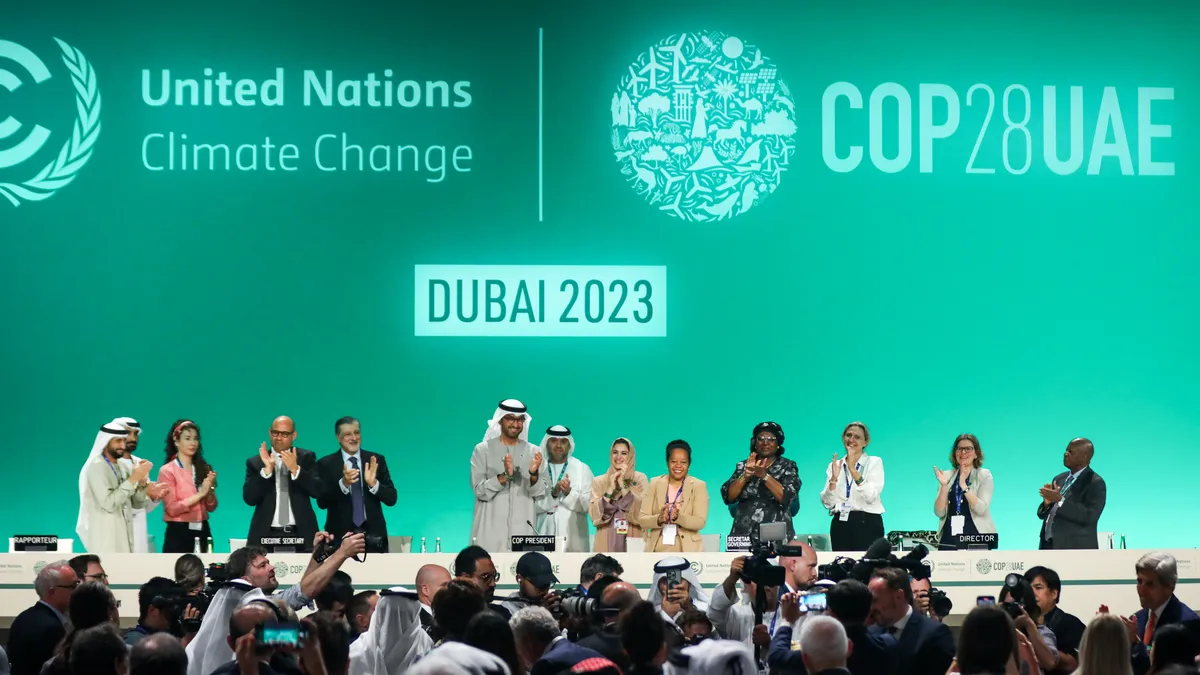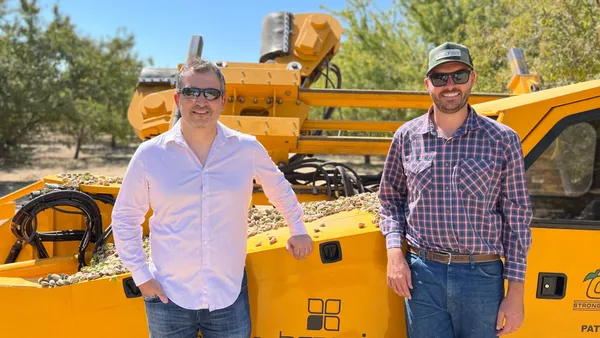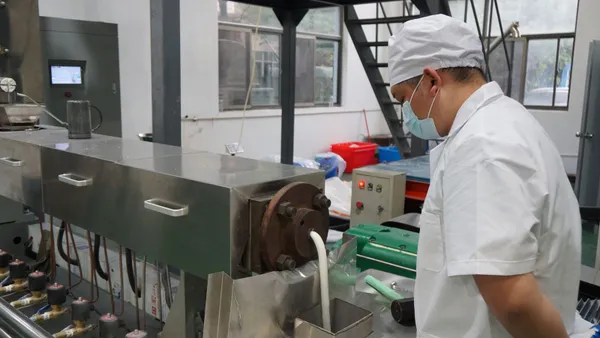Dive Brief:
- Representatives from nearly 200 countries struck a landmark climate agreement Wednesday, calling for a transition away from fossil fuels and the acceleration of sustainable farming practices. The deal marked the conclusion of the COP28 summit, following two weeks of contentious negotiations and several draft proposals.
- The final COP28 agreement was announced a day after the summit was originally scheduled to end due to a prolonged debate on including stronger language on fossil fuels. It passed with no objection or further discussion when presented to delegates — a feat the summit’s president Sultan Al Jaber called a “historic achievement.”
- Beyond a transition away from fossil fuels, the document urged countries to attain "climate-resilient food and agricultural production," through the increased use of sustainable and regenerative farming practices.
Dive Insight:
The United Nations Framework Convention on Climate Change said the final agreement demonstrated global solidarity and signaled the “beginning of the end of the fossil fuel era.” The organization said the final framework lays the groundwork for a “swift, just and equitable transition” by proposing significant emissions cuts and scaled-up financing.
Simon Stiell, UN climate change executive secretary, said the true success of the agreement would be determined by how well countries adopt and implement the guidelines mentioned in the text.
“Now all governments and businesses need to turn these pledges into real-economy outcomes, without delay,” he said.
The final agreement is an upgrade for climate activists from previous versions of the draft text, which at points eliminated language demanding a “phase out” of fossil fuels and made no mention of food systems' role in addressing climate change.
The final COP28 deal now calls for “transitioning away from fossil fuels in energy systems, in a just, orderly and equitable manner … so as to achieve net zero by 2050 in keeping with the science.” It also encourages countries to protect and restore nature through the implementation of "integrated, multi-sectoral solutions" such as land use management and sustainable agriculture.
Additionally, the agreement encourages countries to reverse deforestation and take steps on food security and mitigating vulnerabilities in food production linked to climate change.
“The outcome makes clear that tackling the climate crisis requires transformational action across the board rather than any one sector," said Ani Dasgupta, president and CEO of the sustainable nonprofit World Resources Institute. "The combined calls to triple renewable energy, double energy efficiency, accelerate sustainable transport, transform the food system and protect forests and nature will accelerate the transition to a new climate economy that is good for people, nature and the only planet we’ve got."
Environmental advocates expressed disappointment in language within the agreement justifying the continued use of fossil fuels. Climate activist and former U.S. Vice President Al Gore said “the influence of petrostates is still evident in the half measures and loopholes included in the final agreement,” in a post on X, formerly known as Twitter.
The decision at #COP28 to finally recognize that the climate crisis is, at its heart, a fossil fuel crisis is an important milestone. But it is also the bare minimum we need and is long overdue. The influence of petrostates is still evident in the half measures and loopholes…
— Al Gore (@algore) December 13, 2023
Others followed suit: James Dyke, a professor at the University of Exeter, said the final deal came with “numerous caveats and loopholes that risks rendering it meaningless when it comes to our efforts to limit warming to well below 2°C.”
The United Nations’ climate body also confirmed the next climate summit, COP29, would take place in Azerbaijan in November 2024, with COP30 scheduled to take place in Brazil in November 2025.













